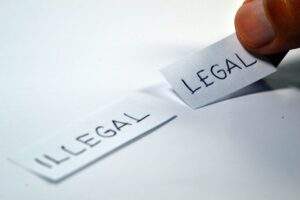Facts and Eligibility on the Expungement Process on Prior Criminal Records
Ex-convicts or people who had past convictions have trouble adjusting to life due to their criminal records. It can affect their day-to-day lives and can determine what their future will be like. Non-violent convictions can have a chance at a new life without being judged for their past. In the legal system, there is a proceeding that helps to erase the records and seal it from any future probing. The process is called expungement. It is a process where it allows a first-time offender of a previous conviction to have his criminal records sealed, making it unavailable in federal or state repositories.
A criminal record, no matter how mild it is, can cause a myriad of consequences in the life of a person. One mistake can cost a person’s whole life. A record of conviction or arrest will have a negative stigma on a person’s future. Landlords would ask rental applicants and employers to interrogate job seekers regarding any criminal offense. There is a high probability that employers and landlords may not entertain any person who has a prior criminal record. However, the legal system has provided a leeway that allows a person to expunge any previous offense from his or her record.
What is expungement?
It is a legal procedure that seals any conviction or arrests records. Every state in the United States has laws that give people the ability to expunge their records. The details and requirements may vary for each state. Once a person’s records are expunged, his or her records do not need to be disclosed. If an employer or a landlord asks about a previous record, the person is not required to disclose his previous conviction or arrest.
It is also defined as a process that destroys or seals criminal records on any federal or state repositories. The process is mostly applied to criminal records but it is a civil process where the petitioner is asking the court to let his or her records be expunged.
Here is an example regarding this procedure:
Person A is convicted of petty theft. This was his only case in the criminal system. Once he served his conviction, person A will need to find a job but to get a chance, he wanted his record to be expunged. Once his record is expunged and person A goes to an interview, the human resources specialist might ask him if he ever had a criminal offense conviction. In this case, person A can answer the question with a “no” as his record has already been cleaned.
Who and how to be eligible for the procedure?
An expunged record would give a fresh start to a previously convicted person. It can be a life-changing procedure for people who are trying their best to change their lives. Before going through this procedure, the petitioner must work with a reliable lawyer in the field. The petitioner must research the state’s laws in relation to the procedure.
The eligibility for the process varies from every jurisdiction. Certain states may allow expungement for misdemeanor or arrest cases only. Federal felonies cannot be removed from any record. People who already served their sentences and finished their probation can also start looking into having their records removed. The process of cleaning records can be difficult but it does not heavily require an attorney. Filing for the process does not need a lawyer since there are forms that can be filled up by the petitioner on his or her own. When the process starts, the petitioner can work with a lawyer to increase the chances of having the records expunged. It must be noted that in some circumstances, licensing boards or police departments can still discover the expunged records.
The most powerful expungement is if a person receives the “Certificate of Actual Innocence”. The certificate does not simply seal a former record but also demonstrates that the record should not have existed.
Here is a scenario concerning the eligibility to get the certificate:
Person B is arrested for trespassing private property. He went into the lawn of another property to pick some fruits in the yard. However, the charges were later dropped. Another case is if Person B was charged with trespassing but was not found guilty. In this scenario, Person B can get the certificate which can clarify that he is innocent and has not been convicted of the aforementioned offense.
Whoever faces criminal charges or has a brush with the criminal justice system must always do their appropriate research. It is recommended that petitioners must work with a reliable and experienced lawyer like Benari Law Group to navigate the system with confidence. The laws for every jurisdiction may vary. Appropriate research can help petitioners fully understand their situation and apply for measures that can help in going through the procedure.







